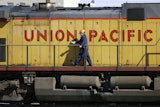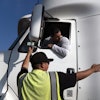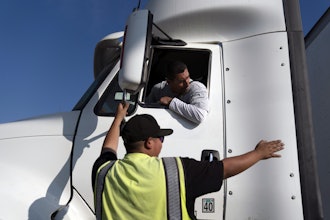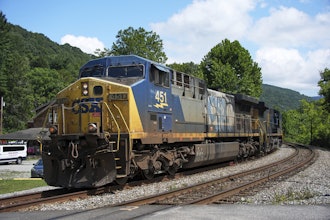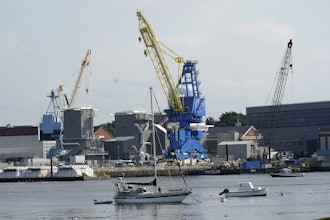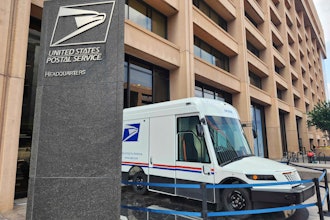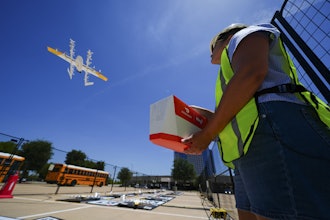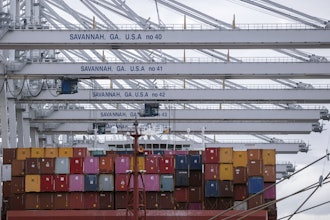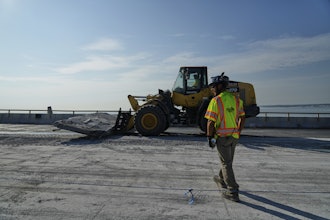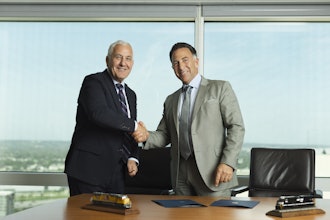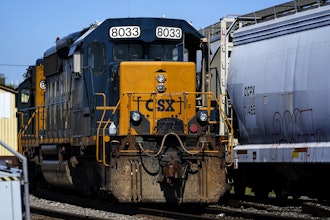Logistics providers face a growing abundance of challenges when it comes to speed, service, talent recruitment, technology implementation, regulations and more.
ID recently spoke with Amerijet president and CEO Vic Karjian to get his thoughts on these issues and more. Amerijet is a global cargo shipping provider, offering a range of air, ocean and freight shipping and transportation services.
ID: Distributors, manufacturers and logistics providers are being increasingly challenged every year to get their products to customers faster and faster. What kind of strain is this putting on logistics companies and airlines, and how are they handling this demand?
Vic Karjian: When it comes to meeting the demand of shippers, there’s no doubt that providing the logistical services exactly when and where it is needed has always been, and will always be a challenge. As an airline, we have to anticipate the global market shifts and challenges of tomorrow. Amerijet has been planning and is investing for the future; we have plans to add two B767-300 aircraft in 2017 and more to come in 2018, which will increase our operations and efficiencies. Our focus is building a global network so that it can quickly respond to any request to any destination, worldwide. We need to deliver quality; quality is the name of the game.
ID: Amazon recently announced their Air Cargo hub plans for the northern Kentucky airport. How do you see this impacting Amerijet, and the air cargo logistics market overall?
Vic Karjian: E-commerce continues to gain global market share. Customers are buying more via the internet and the use of mobile devices to do this is making it even easier. Customers buying online want their experience to be easy from ordering to delivery. For an online retailer, it's incredibly important to satisfy their customers as quickly as possible and that’s what makes Amazon so successful. The challenge of delivering shipments quicker is also an opportunity for air cargo carriers, such as Amerijet. Our long-term strategy includes increasing frequencies and customized shipping solutions which range from door-pick-up and delivery, customs brokerage, cross-border delivery. For us, the importance of the customer experience takes center stage. Amerijet has a wide range of international e-commerce customers and we are also a part of their growth strategy.
ID: There’s been a lot of talk about a large upcoming driver shortage in the freight logistics market. How is Amerijet preparing for this? What are your thoughts about how likely this driver shortage is to happen, and its implications for overall supply chain operations?
Vic Karjian: Many years ago, Amerijet owned and operated its own trucking division which connected our U.S. offices to our air hub in Miami. We can certainly speak about the difficulties of finding qualified drivers. At the time, we found that the shortage of drivers was really based on high turnover rates and a lack of available workforce in major metropolitan cities. The challenge for every trucking company is to find and hire long-term drivers. Today, Amerijet partners with multiple long-range and local trucking provides here in the U.S., as well as internationally to offer pick-up and delivery services.
ID: Automation is becoming more and more engrained in logistics operations everywhere, from material handling to self-driving trucks and ships. Can you elaborate on the level of automation used in Amerijet’s operations, and your thoughts on automations impact on the overall cargo market (air, ocean and freight) over the next couple years?
Vic Karjian: Air freight carriers have to integrate with other logistics companies, marketplaces and transactions. IT capabilities are very important in the future of the air cargo industry. Being able to know exactly where a shipment is and being able to track or monitor a shipment on a smartphone or via any logistics tracking platform is critical to the next generation of customers. Amerijet has been very proactive to modernize our systems for our customers, which allow them to save time, diminish paper waste, and reduce errors and manual processes. Amerijet has the capabilities to connect directly to its customers through Electronic Data Interchange (EDI) messaging, into their own back-office systems or through Descartes, CHAMP and other providers which use the Cargo-IMP standard for exchanging cargo data. Our systems create and use XML messages for every transaction. Soon, our faster, sleeker, mobile friendly website will be launched to provide easier tracking, faster quotes, bookings, and account information for our customers.
ID: How does Amerijet handle the challenges of transporting Lithium Batteries by Air?
Vic Karjian: Lithium batteries have been a hot topic when it comes to carrying and shipping electronics on board an aircraft. Lithium ion batteries are found in countless high-tech products — laptops, medical devices, security systems, cell phones, cameras, power tools and many other goods. While products containing lithium batteries are banned on passenger aircraft, including in-cargo holds, lithium batteries are permitted on all-cargo or dedicated freighter aircraft. As an all-cargo carrier, Amerijet transports shipments containing lithium-ion and lithium-metal batteries. When a shipment of lithium batteries or electronics containing lithium batteries gets rejected, the problem isn’t usually the lithium batteries. It’s the way in which they are packaged, labeled or declared. Many shippers either aren’t taking the time to ensure full compliance with the regulations or do not understand the regulations. That’s where Amerijet’s certified hazardous-material shipping agents can be a valuable resource for shippers. Our staff is trained to identify and ensure that all shipments are compliant with all U.S. and international regulations.
ID: What is Amerijet’s customer approach looking into the future?
Vic Karjian: Global logistics require Amerijet to provide seamless multi-modal transportation solutions, which should be transparent to the customer. As a company, we are not looking into the past; we are positioning ourselves for the future. We encourage our customers to tell us the challenges they face and we work with them to create solutions. We have developed many services that our customers have asked for, such as a worldwide partner network, door pick-up and delivery, customs brokerage, cross-border trucking solutions, and packing & crating services. Technology plays a key role today and for the future. It drives efficiencies and allows our customers to manage their business with Amerijet electronically. We will continue to invest in leading edge technology and services that our customers will need in the future.
